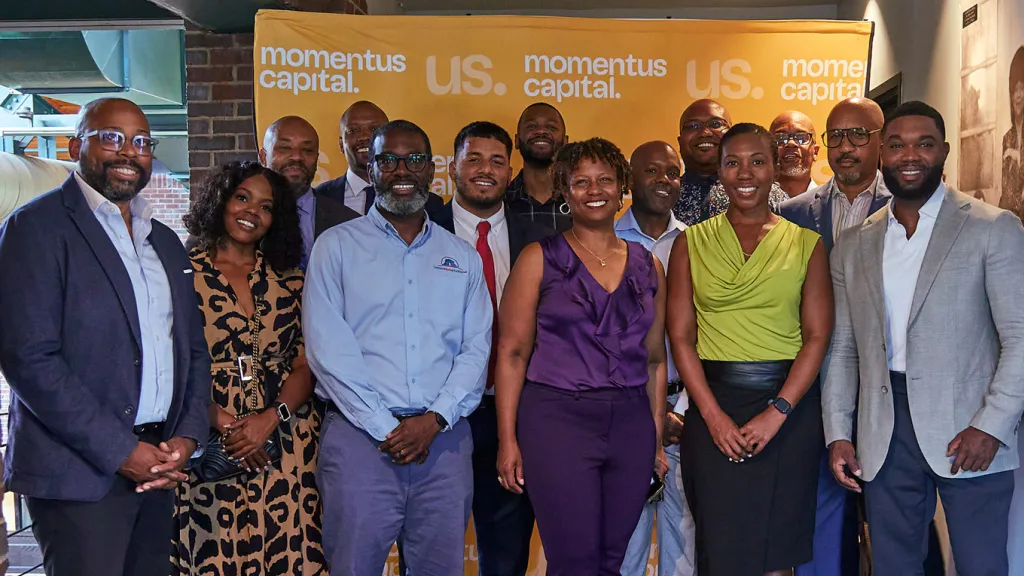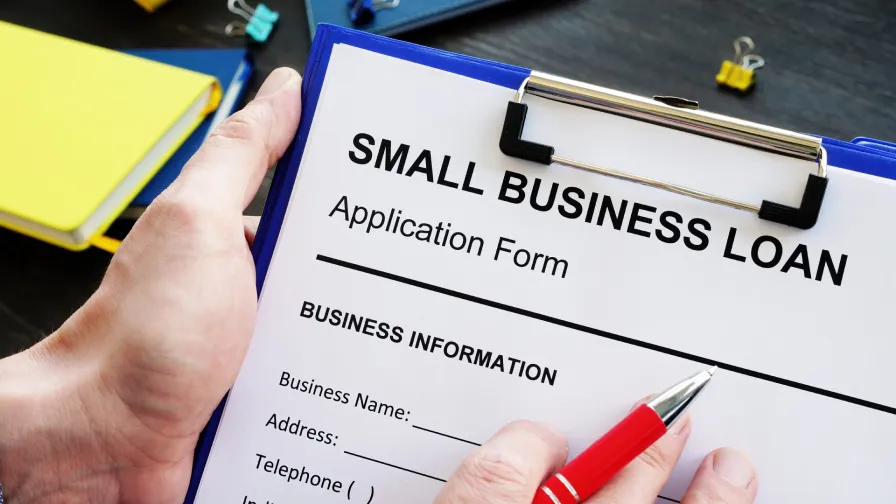Despite the fast-growing online lending space, the vast majority of small business owners are still going to brick-and-mortar banks to ask about business capital, according to a recent SBA study. But did you know there’s a third, often-overlooked option for business loans that offers both affordable rates and high-value personalized service? This alternative is community lenders, also known as community development companies, or CDCs.
These non-profits — CDC Small Business Finance being among them — offer both SBA and non-SBA financing geared toward a broad range of clients, from entrepreneurs in underrepresented communities to more experienced enterprises wanting to buy commercial space.
Check out the many value-added features and services you can get at a community non-profit lender and what to expect from a traditional bank or an online-only outfit.
What kind of credit score do I need for a business loan?
Bank lender: One of the most important elements of your business loan application is your personal credit score, or FICO score, which ranges from 300 to 850. Generally speaking, the higher your score, the better your chances are of securing financing and an affordable rate. Traditional banks typically look for a minimum credit score of 680. And since these are highly regulated, for-profit companies, the likelihood they’ll budge on this requirement is pretty slim. (More on traditional banks and their underwriting requirements later.)
Non-profit lender: At some non-profit community lenders, your personal credit score can be as low as 620. How can that be? One reason is mission. Organizations like CDC Small Business Finance make it a priority to help underserved communities — including women, minorities and military veterans — obtain financing they may not be able to get elsewhere. Another reason for our increased flexibility is that the U.S. Small Business Administration guarantees a portion of SBA loans. This helpful tool reduces risk for lenders in the event the loan fails.
Related: What do I need for a small business loan?
Online-only lender: Generally speaking, a sub-600 credit score is considered poor. In fact, nearly two-thirds of borrowers with scores of 579 and under will likely “become seriously delinquent in the future,” according to Experian, one of the credit-reporting bureaus. That’s why many lenders tend to shy away from this subset of customers. However, many online-only lenders have carved out a niche serving this group. But remember: The laxness they exercise with credit-score requirements is made up by higher cost of borrowing. Since these lenders are taking on more risk, they’ll be charging you a higher annual percentage rate, or APR. At times, they can be as high as 150 percent, making online loans some of the highest-cost financing options at your disposal.
How strict or flexible are lenders with credit-report flaws?
Bank lender: Your credit score is just one slice of the your borrower profile that lenders look at to determine how reliable you are when it comes to repaying debt. This review process includes evaluating your credit report, which is essentially a history of your debt. Generally, traditional banks are less forgiving about common credit issues including late or missed payments, and collection items. What if you’ve declared bankruptcy? You’ll generally have to wait up to 10 years before a traditional lender will let you borrow money again.
Non-profit lender: Since community lenders are non-profits and have the backing of the SBA, we have increased flexibility when it comes to approving small business loan requests. In other words, we consider a borrower’s whole story instead of merely the cold-hard, numbers. We understand that life happens. That’s why we take into account events-based issues, from illness to unique market-based events, when making our underwriting decisions. When it comes to bankruptcies, we allow more flexibility in wait periods: from 3-5 years.
Related: Declined by a bank: 5 ways to get loan ready
Online-only lender: They’re perhaps the most forgiving out of three when it comes to any credit-report flaws. There’s good reason for that attitude. Their comfort with increased risk is mitigated by the higher interest rates they charge their clientele.
How do they compare on business-loan cost?
Bank lender: In most cases, you’ll get the best market interest rate from a conventional bank lender. The catch here? You’ll have to meet their stringent underwriting requirements, including stellar credit score, little to no credit flaws, and ample business history. What’s more, brick-and-mortar banks are generally less likely to make smaller-dollar loans since the cost of processing one of those is comparable to a higher-dollar loan, which generates more income for their companies.
Non-profit lender:A typical business loan at a community lender can be as low as 5.3 percent for a commercial real estate loan and can start at 7 percent for a general small business loan. Some programs that cater to less experienced business owners can charge up to 18 percent. At CDC Small Business, our ceiling is about 14.5 percent. With us, you can borrow as little as $20,000. In fact, microlending is in our DNA: In 2018, the SBA named us Jody C. Raskind Microlender of the Year. And unlike many traditional banks, we fund startups (we just ask for a 10 percent down payment for businesses operational for less than 12 months and prefer industry-related experience.)
Online-only lender: Many web-only business lenders will let you borrow as little as $5,000 and have it in your bank account within a few days. While you’ll suddenly see an influx of capital quickly, again expect to pay as much as 150 percent in interest annually. Oftentimes vague terms will prevent you from knowing the APR.
Related: Free e-book: Looking into an online business loan? Ask these 10 questions first
What kind of service can I expect from these business lenders?
Bank lender: If you can qualify for conventional lending, chances are, you’re getting your small business loan where you do your business banking. The level of customer service you’ll get will depend on a host of factors from bank brand, the relationship you have with your bank, and your loan officer’s level of experience.
Non-profit lender: At a community lender like CDC Small Business Finance, expect personalized, empathetic service pre- and post-funding. Very few lenders can say they offer professional business coaching at no cost to their clients to ensure success with their loan package and out in the small-business world.
We have a dedicated business-advising team to help with everything from business-plan writing to creating realistic projections. We also have a strong team of loan officers who will only match you with financing that makes sense for you and your business in the long run, not just in the present moment. The cherry on top: We have close relationships with partners who will charge you nothing for their expert business services, from SCORE business mentoring to guidance from small business development centers, or SBDCs.
Related: How to get free professional business coaching
Online-only lender: If you have questions about your online business loan, you’re likely dealing with a customer service rep or salesperson by way of email or phone, not a small business expert. In some cases, you may be interacting with chatbot, which oftentimes is not a person. Web-only business lenders generally do not have teams or partnerships that offer free business counseling or mentoring to their clients.
Check out the difference in service and cost with a community lender like CDC Small Business Finance. We’re one of the leading nonprofit lenders in the U.S., offering several loan options for business owners eyeing company launch or growth.
Tell our loan experts about your business, and they’ll work to match you with a financing plan that best suits you. Let’s talk! Reach us at loaninfo@cdcloans.com or (619) 243-8667.





